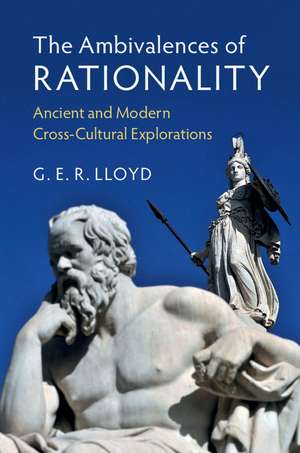The Ambivalences of Rationality: Ancient and Modern Cross-Cultural Explorations
Autor G. E. R. Lloyden Limba Engleză Hardback – 20 dec 2017
Preț: 319.16 lei
Preț vechi: 347.62 lei
-8% Nou
Puncte Express: 479
Preț estimativ în valută:
61.07€ • 63.93$ • 50.53£
61.07€ • 63.93$ • 50.53£
Carte indisponibilă temporar
Doresc să fiu notificat când acest titlu va fi disponibil:
Se trimite...
Preluare comenzi: 021 569.72.76
Specificații
ISBN-13: 9781108420044
ISBN-10: 1108420044
Pagini: 132
Dimensiuni: 159 x 235 x 12 mm
Greutate: 0.31 kg
Editura: Cambridge University Press
Colecția Cambridge University Press
Locul publicării:Cambridge, United Kingdom
ISBN-10: 1108420044
Pagini: 132
Dimensiuni: 159 x 235 x 12 mm
Greutate: 0.31 kg
Editura: Cambridge University Press
Colecția Cambridge University Press
Locul publicării:Cambridge, United Kingdom
Cuprins
1. Aims and methods; 2. Rationality reviewed; 3. Cosmology without nature; 4. Seeming and being; 5. Language, literacy and cognition; 6. Gods, spirits, demons, ghosts, mysticism, miracles, magic, myth; 7. Conclusions: the ambivalences of rationality.
Notă biografică
Descriere
Cross-cultural examination of notions and practices of rationality in ancient and modern societies, drawing on philosophy, ethnography and cognitive science.
